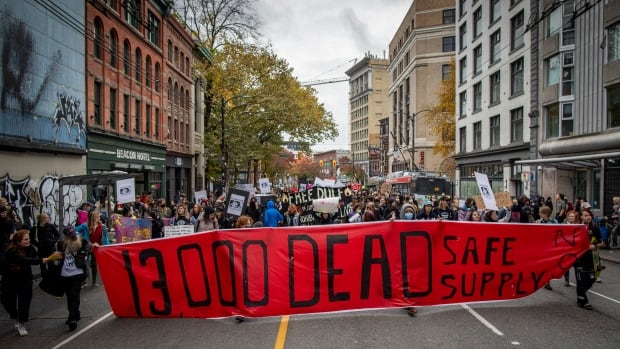B.C.’s top court has rejected the provincial government’s attempt to appeal a pause imposed during a legal challenge of a law restricting illicit substance use in many public spaces.
The Court of Appeal decision on the case brought by Public Safety Minister Mike Farnworth was released Friday, a ministry spokesperson confirmed.
It upholds a three-month temporary injunction — ordered Dec. 29 by B.C. Supreme Court Chief Justice Christopher Hinkson — against enforcing the Restricting Public Consumption of Illegal Substances Act, which was passed in November.
Despite the fact the judge “declined to grant the province leave to appeal,” the ministry said, it will continue fighting for its law, arguing it aims to help drug users find services while keeping other members of the public safe.
“We are disappointed with this decision and we remain committed to defending this legislation in court against the legal challenge,” Farnworth said in an emailed statement Saturday. “We think it makes sense that laws around public drug use be similar to those already in place for public smoking, alcohol and cannabis.
“Our government remains committed to treating drug addiction as a health-care issue and not as a criminal one.”
The Supreme Court case involves the Harm Reduction Nurses Association (HRNA), which argues banning substance use in a wide range of public spaces will result in more drug users dying alone.
The Court of Appeal ruling comes amid debate over drug use in public places and a day after the B.C. Coroners Service said 198 more people died from toxic drugs in January, an average of 6.4 deaths every day.
More than 14,000 people in British Columbia have died from illicit substances since 2016, the service said Thursday, and 2023 saw the most fatalities ever recorded in the province.
The B.C. Supreme Court has paused a law that banned drug consumption in public places, citing ‘irreparable harm.’ The measure was initially passed for the duration of a pilot project that decriminalized the possession of illicit drugs in the province.
Farnworth’s legislation allows police to order people using illicit drugs out of a broad range of public spaces, including near residences, playgrounds, transit stops, parks and beaches; it also requires municipalities to consult with the province before creating their own drug use location bylaws.
Hinkson’s granting of the injunction halted implementation of the law. In his written decision, he said “irreparable harm will be caused if the act comes into force.”
“The act will promote more lone drug use … particularly dangerous due to an absence or a diminished degree of support in the event of an overdose,” he wrote. “When people are isolated and out of sight, they are at a much higher risk of dying.”
However, he agreed that using illicit substances in public places causes its own harms, including the loss of public space to other people, discarded drug paraphernalia, drug-related crimes, and “decreases in real and perceived public safety.”
In a statement following that ruling, the HRNA applauded the injunction, saying it could help save lives.
“This proposed law would threaten the lives, health and safety, and Charter rights of our clients,” said HRNA president Corey Ranger on Dec. 29, “many of whom live in communities that lack safe, indoor locations where drug use is permitted.
“This law would drive our clients into more remote and isolated locations away from services and emergency care.”
A month later, B.C.’s attorney general appealed Hinkson’s temporary injunction until March 31, arguing in court documents that his decision was “not firmly grounded on the evidence,” including he “failed to consider that the alleged irreparable harm is avoidable by people who use drugs” and it improperly relied on “inadmissible opinion” as evidence.


